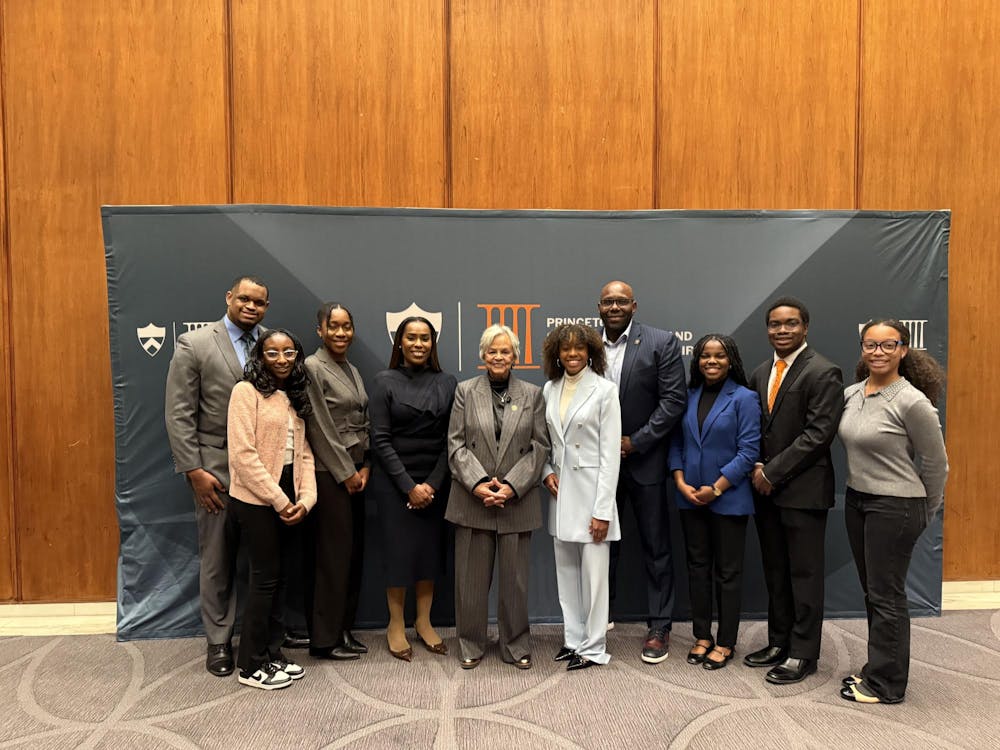Seeking to clarify the University's plagiarism rules, the office of the Dean of the College is distributing a supplement to "Rights, Rules, Responsibilities."
The 45-page booklet, titled "Academic Integrity at Princeton," is divided into 13 clearly labeled sections. It discusses plagiarism, collaboration and methods of citing sources. In addition, the booklet provides tips on how to avoid infractions of the rules and explains what happens when students violate them.
According to Associate Dean of the College Hank Dobin, who came up with the idea to create the booklet, half or more of the plagiarism cases occur because students do not understand the rules. "It became clear to me that the University could do more to make sure students understand the rules of academic citation," he said.
While RRR contains descriptions of what constitutes plagiarism and inappropriate collaboration, Dobin said he believes many students do not have a copy of that guide.
"Juniors and seniors couldn't find [the RRR] in their room if their life depended on it," Dobin said jokingly. In addition, even if students have read RRR, they may not fully understand it, he said.
Dean of Undergraduate Students Kathleen Deignan, who is on the discipline committee, said the complex language of RRR may deter students from reading it.
"It's not exactly scintillating bedtime reading . . . Students don't often pick it up until after they've run afoul with the rules," she said.
And according to RRR, ignorance of rules is not an acceptable defense.

While "Academic Integrity at Princeton" is largely a rehash of what is stated in the Academic Regulations section of RRR, Dobin said he believes the new handbook will be easier for students to use.
Deignan said the University already emphasizes these rules a great deal. Before they even get to campus, freshmen are mailed a copy of RRR.
"When freshmen arrive, they meet with their directors of studies, and they go over it again," she said. "In midterm week and again before reading period, I send an e-mail saying, 'Remember these points about academic integrity.' "
"Because it's so important, we just keep wanting to find ways to catch [students'] attention," she added.

Because the new handbooks do not fit into the Frist mailboxes, they are available for upperclassmen at the Frist Welcome Desk. "It's going to be very helpful for them in writing their junior papers and senior theses," Dobin said. The booklets were also distributed to underclassmen in the last two weeks through their RAs.
Dobin said a recurring misunderstanding is the difference between primary and secondary sources. Some students, he said, believe secondary sources "belong to the realm of common knowledge."
According to RRR, students are not necessarily required to cite "public domain" knowledge. The confusion between what is and what is not common knowledge is addressed in the new booklet.
"We've heard enough horror stories . . . of people getting files mixed" and losing track of which ideas are theirs and which belong to others. This scenario, even if occurring by accident, could lead to a student being brought up on charges of plagiarism, Dobin said.
In addition, students sometimes misunderstand the regulations regarding collaboration and citation in writing computer programs for computer science assignments. Because this topic is not specifically addressed in the RRR, Dobin included examples of what not to do in the booklet.
Dobin first started working on the booklet two years ago. He designed it in collaboration with Deignan, Wilson College Director of Studies Hall Frank Ordiway, computer science professor Edward Felten and Ryan Bergsieker '98.







